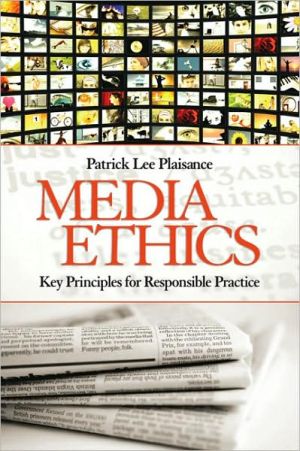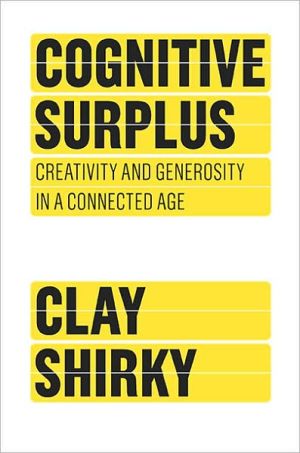Media Ethics: Key Principles for Responsible Practice
Making ethics accessible and applicable to media practice, Media Ethics: Key Principles for Responsible Practice explains key ethical principles and their application in print and broadcast journalism, public relations, advertising, and media-based marketing. Unlike application-oriented case books, this text sets forth the philosophical underpinnings of key principles and explains how each should guide responsible media behavior. It avoids moralizing and instead emphasizes the deliberative...
Search in google:
Making ethics accessible and applicable to media practice, Media Ethics: Key Principles for Responsible Practice explains key ethical principles and their application in print and broadcast journalism, public relations, advertising, and media-based marketing. Unlike application-oriented case books, this text sets forth the philosophical underpinnings of key principles and explains how each should guide responsible media behavior. It avoids moralizing and instead emphasizes the deliberative nature of ethics, inviting students to grapple with ethical dilemmas on their own and presenting ethical theory in a way designed to enrich classroom discussion. Author Patrick Lee Plaisance synthesizes classical and contemporary ethics in an accessible way to help students ask the right questions and develop their critical reasoning skills, both as media consumers and media professionals of the future.
1. Ethics Theory: An Overview Ethics defined Key thinkers through the ages Idealism and relativism Means and ends Intents and consequences For discussion2. Ethics Theory: Application to Media Ethics versus wrongdoing Values in the media A checklist for ethical reasoning Perceptions of bias in the media Media ethics in cyberspace For discussion3. Transparency Trust and secrecy Transparency as respect Kant: The 'principle of humanity' Kant: The 'theory of human dignity' Transparency and the media Transparency in cyberspace For Discussion4. Justice Concepts of justice Rawls and utilitarianism Rawls and 'A Theory of Justice' Power of Rawlsian justice Value of Rawls for ethics Justice as fairness in the media Justice in cyberspace For discussion5. Harm What constitutes 'harm'? 'Harm' as culturally bound concept Understanding 'harm' in the media 'Harm' more precisely defined Mill's harm principle Harm in cyberspace When concern for harm and other duties conflict For discussion6. Autonomy Freedom and autonomy Autonomy as 'positive' freedom Moral autonomy Autonomy and 'natural law' Autonomous agency and the media Journalistic independence Autonomy for PR professionals Autonomy in cyberspace For discussion7. Privacy Privacy defined The moral value of privacy The history of privacy Privacy in the media Privacy in cyberspace For discussion8. Community Defining community Philosophical roots of 'community' Communitarian theoryCommunity: A feminist priority John Dewey and community The idea of the public sphere Community and journalism Community and public relations Community and advertising Community in cyberspace For discussionConclusion Theories of moral development Implications of a universal moral theory Media ethics in cyberspace
\ Deni Elliott"This book, more than any other media ethics textbook currently available, treats students as the intellectually curious, philosophically aware, and ethically motivated individuals that we hope them to be. As one brings one’s own wisdom to the reading with the understanding that there is more to learn, this is one of those rare books that has the potential to keep on giving to professors and to students."\ \








